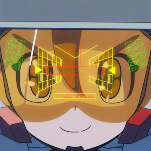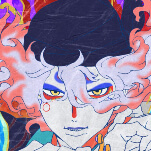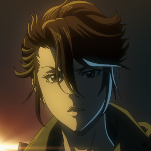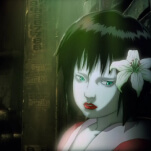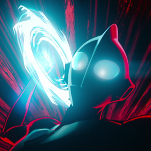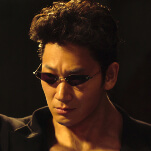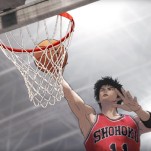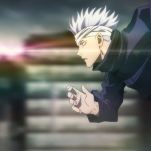Jazz Anime Blue Giant Hits the High Notes
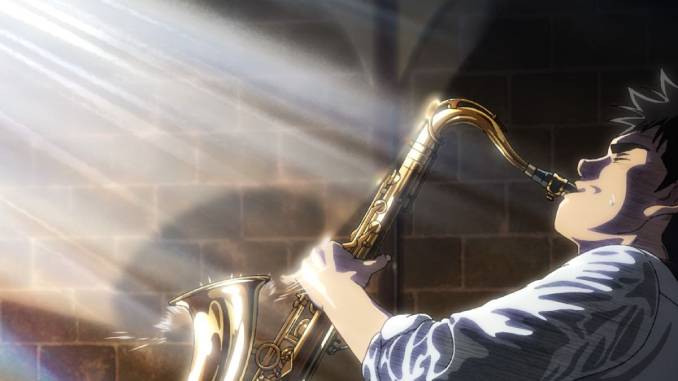
In his first feature since wrapping the critically acclaimed third season of Mob Psycho 100, director Yuzuru Tachikawa takes on the hallowed musical anime. Adapted from Shinichi Ishizuka’s ongoing manga series, Blue Giant is a film about a boy who wants to become the greatest jazz musician in the world, as he takes the most consequential step of his journey: Moving to Tokyo to break into the dying scene.
There are a few directions musical anime can go and, as Blue Giant is about college-aged kids, I was wondering if this might lean more into the reality of gigging and keeping your dreams afloat while struggling to afford rent, or being gatekept by the old guard who can deny someone the few open seats for petty reasons. There are certainly some elements of those realities that concern this story, and I wouldn’t say it’s unlike Whiplash in a few key ways, but Blue Giant borrows much of its DNA from sports anime.
And ya know what? We need more directors like Tachikawa making sports anime. It’s all big feelings and big ideals here. Motivation is the true force compelling one forward, as the kids prove their aspirations are more than naivete and inspire those with the power to make their dream come closer to reality with such passion. Their musical ability is a given, any technical hurdles resolved through character growth.
Blue Giant remains grounded enough. Dai (Yuki Yamada), having left his hometown with a backpack and tenor sax, imposes on an old friend who moved to the city for college. He’s quickly met with the fact that there’s not enough venues left to make playing for money a possibility and begins working to pay his now-roommate Shunji (Amane Okayama) rent while scouring the city for musicians. He quickly meets pianist Yukinori (Shotaro Mamiya), who, unlike Dai, was surrounded by music at a young age. The two’s contrasting backgrounds and proximity to the world of professional music leads them to butt heads and build each other up the way rivalries-turned-bromances do in sports anime. Yukinori is more jaded, but also more technically proficient; Dai’s spirit undeniably comes through his sax’s sound. In anime, at least, that’s enough.
Meanwhile, Shunji is inspired to take up an instrument for the first time and learns to be the combo’s drummer. Having once been a competitive soccer player in high school, Shunji struggles to find fulfillment in the low-stakes, low-commitment effort of his college’s social team. That quintessentially youthful, idealistic spirit of high school sports anime has gone missing, but he finds it again in Dai’s passion for jazz. It’s a similar experience I had in moving from a perhaps overly serious high school band program to a college marching band, and it’s a hard-to-accept shift that many non-professional musicians and athletes will recognize.
-

-

-

-

-

-

-

-

-

-

-

-

-

-

-

-

-

-

-

-

-

-

-

-

-

-

-

-

-

-

-

-

-

-

-

-

-

-

-

-


